One step from enemy: Life under daily Russian bombings in border Sumy region
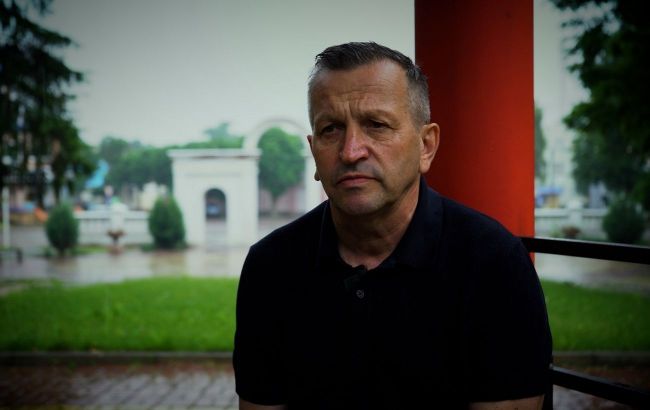 Yurii Zarko, Head of the community in Bilopillia, Sumy region (photo: RBC-Ukraine)
Yurii Zarko, Head of the community in Bilopillia, Sumy region (photo: RBC-Ukraine)
What’s happening in Sumy and along the border with Russia, how residents are surviving under enemy drones and guided aerial bombs, whether people are leaving the region, and what they say about the war - read in the RBC-Ukraine report.
Russia planned an offensive on Sumy as early as the summer of last year, but Ukrainian defenders got ahead of the invaders and entered the territory of the Kursk region. For almost a year now, intense fighting has been raging on the northern front. The enemy is closing in and terrorizing civilians every day, from the border villages to the regional center. According to DeepState, just over 20 kilometers remain between the outermost point of the front line and the city of Sumy.
Road under attack by drones and guided aerial bombs
Morning. Central Sumy. We're heading north, taking what used to be a regular bus route to Bilopillia. It was here, in May, that Russians struck a bus with a Lancet drone, killing 9 people. Due to constant danger, local roads are now covered with anti-drone nets, which make aerial reconnaissance harder for the enemy and offer some protection from attacks.
We drive into Bilopillia and immediately look for a place to hide the car. Enemy drones constantly fly overhead, but they're not even the biggest threat. The moment we step out of the vehicle, a man runs up to us and urgently tells us to take shelter - guided aerial bombs have just been launched.
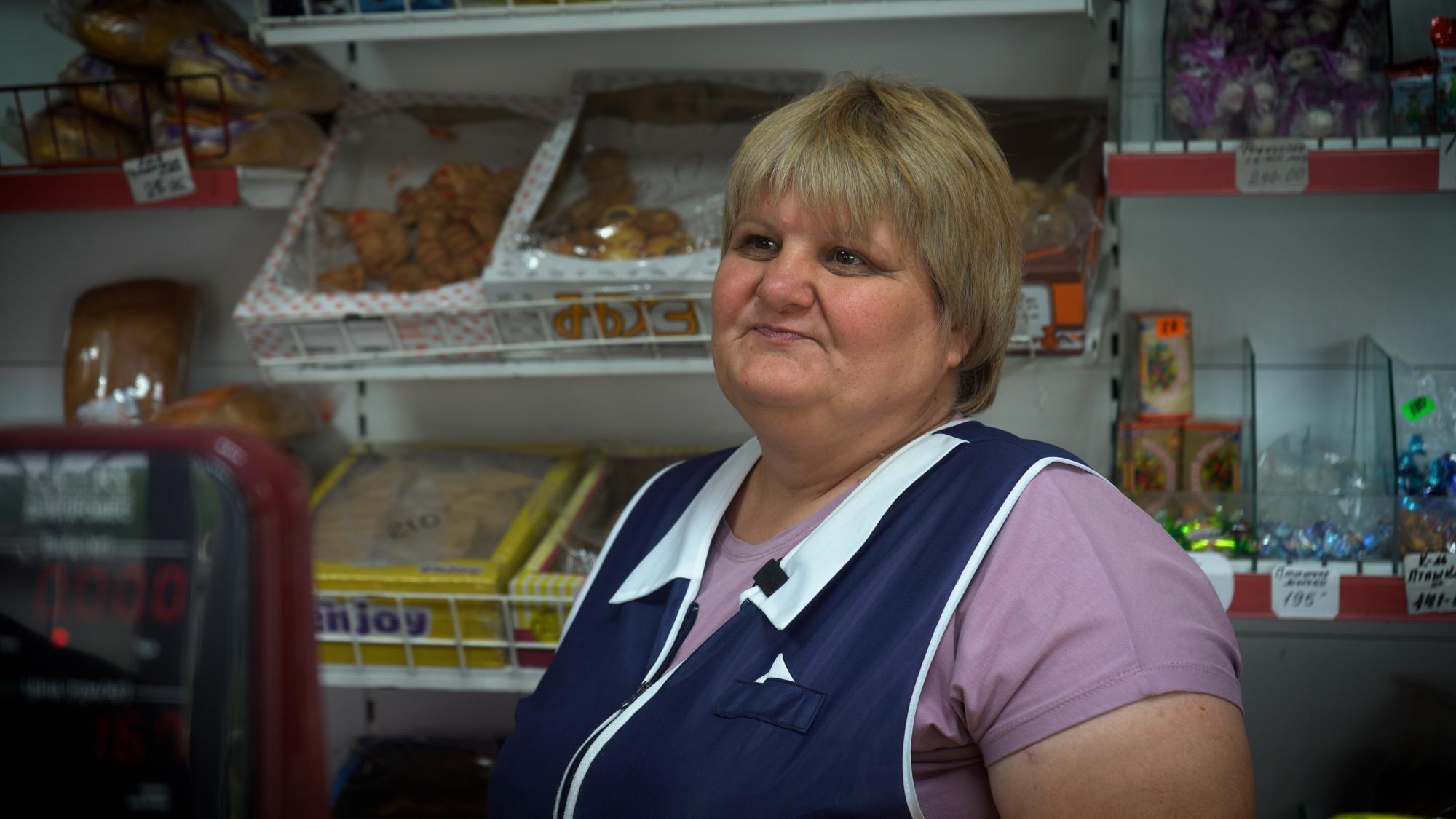 In Bilopillia, enemy drones fly over constantly, and the threat of guided aerial bomb launches is ever-present, locals say (photo: RBC-Ukraine)
In Bilopillia, enemy drones fly over constantly, and the threat of guided aerial bomb launches is ever-present, locals say (photo: RBC-Ukraine)
Near a multi-story building section, we meet a group of women, municipal workers. Despite constant air alerts and the risk of strikes, they remain optimistic and say they’re not planning to leave their hometown.
"We were born here, we live here. We have to work - keep things clean and beautiful. We plant flowers. Peace will come to Ukraine, and everything will be okay. Ukraine will win. It can't be any other way," says one of the women.
Between their tasks, the women take shelter in basements. They explain that strikes happen daily, both in the town itself and the surrounding villages. The air is filled with the rumble and whistle of various munitions.
In a typical multi-story building basement, we see an improvised shelter. People here not only protect themselves - they care for their pets too. Even the cats have water bowls.
Underground administration
Basements here serve not just as shelters. On the enemy border, the entire local government has also moved underground - it's too dangerous to work in administrative buildings. We go down into a basement where the city council now operates. After a few moments in darkness, a fully functioning underground office comes into view. Staff members are energetically tapping on their keyboards. Everyone is busy with their tasks.
At the far end of the room sits the head of the community, Yurii Zarko. We've seen each other before during the war. Despite the difficult conditions, the work of the local government hasn't stopped. At the moment, Yurii is monitoring incoming fire. He runs the community's Telegram channel, where he warns locals about threats.
"I have a Telegram channel, and I write in it, along with my son. It's easier for me this way. I can track a guided aerial bomb launch - we get 5-6 minutes. And people immediately hide. They trust this channel deeply. If we write something, it means something’s coming," Yurii explains.
On the walls of the underground office hang children's drawings - some by local kids, others sent from across Ukraine to support defenders. In one corner sit a few toys. Staff used to bring their kids to work here, but now they've been evacuated.
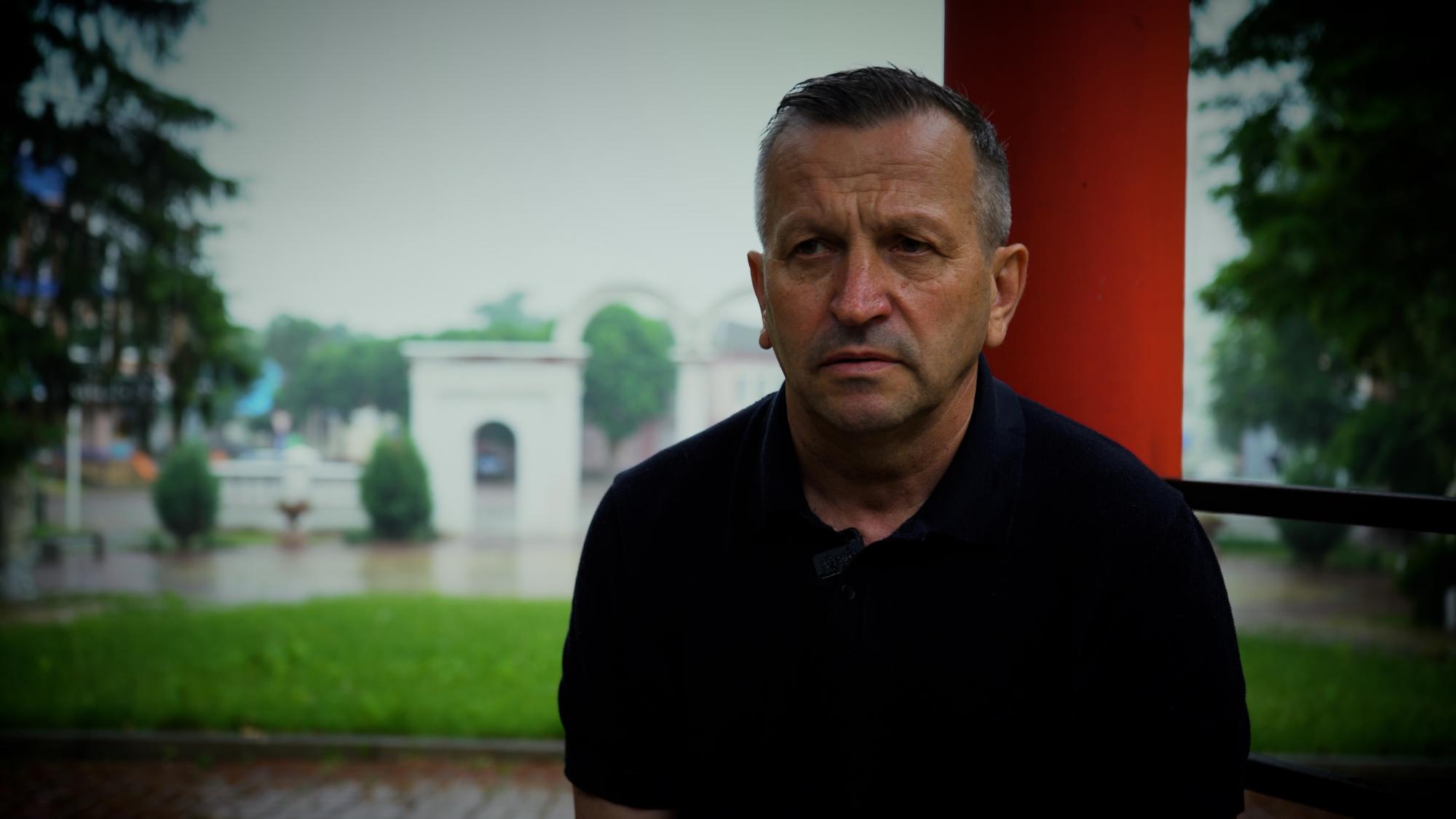 The head of the community, Yuri Zarko, runs a Telegram channel to warn residents about threats (photo: RBC-Ukraine)
The head of the community, Yuri Zarko, runs a Telegram channel to warn residents about threats (photo: RBC-Ukraine)
"There are officially no children left in the community. When things got really dangerous, we started evacuating. Sometimes they come back briefly to collect belongings, that's it," the community head says.
Evacuations are taking place daily along the border. Representatives from various organizations and charities arrive regularly. A separate Telegram channel was created for this purpose - locals can post about preferred evacuation dates, find new housing, or even a jobs.
"There are many offers: housing, livestock transport help, even jobs - so people can start earning right away," Yurii says.
Together with Yurii, we walk to the town's central square. Fortunately, it's raining - so there are no drones in the sky. Enemy UAVs often target civilians. Yurii recalls a recent tragedy.
"People were on their way back to Sumy in the morning, and the bus was hit by a Lancet drone. Nine people died, and seven were injured. That bus used to run daily to Shostka, Hlukhiv, and Putyvl. Sadly, since the attack, the number of routes has dropped significantly, making it harder for people to leave, even to Sumy. And the need is huge. Banks don't work here. Shops only carry the bare minimum. Thank God, some pharmacies are still open," the community head says.
In the center, there's a large white arch, a fountain, and a gazebo. Chinese lanterns used to hang here, creating a special evening atmosphere. Yurii keeps photos on his phone of what the town looked like before the war. There were festivals, cozy recreation spots, and a vibrant local life. There were big plans for Bilopillia's development. Despite today's grim situation, the community head believes the war will end and everything can be rebuilt, even better than before.
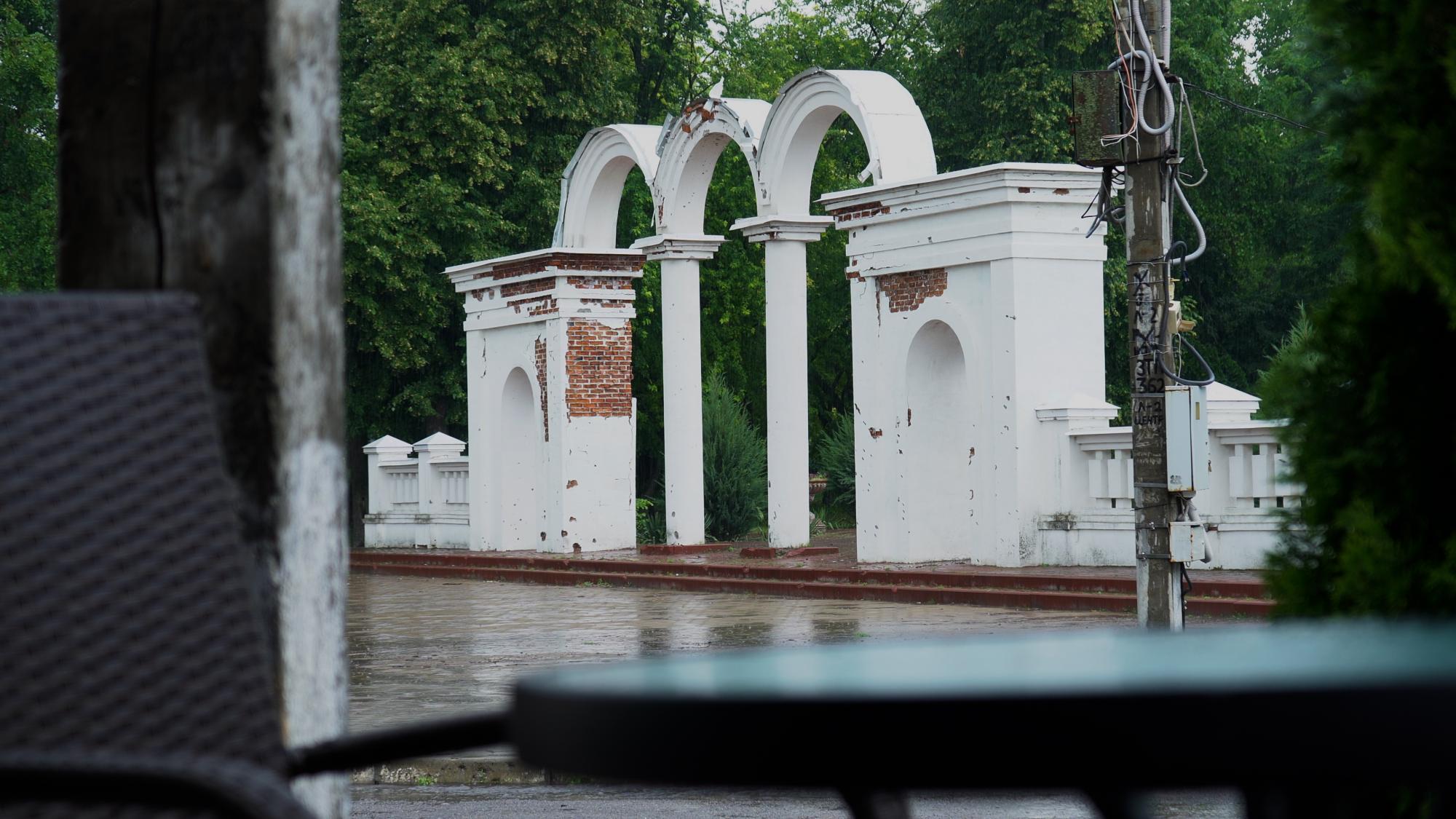 A large white arch, a fountain, and a gazebo sit in the town center. This place once had big plans for the future (photo: RBC-Ukraine)
A large white arch, a fountain, and a gazebo sit in the town center. This place once had big plans for the future (photo: RBC-Ukraine)
Life in ruins without connection or electricity
Another one of our interviewees, also named Yurii, is originally from Bilopillia but has since moved with his family to Sumy. Every week, he returns to bring groceries and fresh newspapers. For many locals, newspapers are practically the only connection to the outside world. In many parts of the town, there's barely any cell connection or internet. Constant shelling often knocks out electricity. So, printed news becomes a real rescue.
In Yurii's car is a drone detection device. From time to time, it emits a piercing sound - it means a UAV might be nearby.
"I deliver newspapers. There's a stack right there, by the way. Fresh, Saturday's edition. I came on Tuesday, but an artillery strike started, and I realized I probably wouldn't make it. I also bring food, because not everything makes it to the stores. Some people still do deliveries, the ones who aren't afraid. But a lot of folks gave up," Yurii tells us.
The city is under constant attack. The Russians drop bombs, shell it with artillery, drones, and MLRS. They're trying to destroy homes, infrastructure, and bridges.
"They hit the bridge. And honestly, if they’d really taken out the bridge, logistics would've been in a sad state. They were trying to destroy it to cut off supply routes," Yurii says.
 Bilopillia resident Yurii delivers food and newspapers to locals (photo: RBC-Ukraine)
Bilopillia resident Yurii delivers food and newspapers to locals (photo: RBC-Ukraine)
The craters in the streets are taller than a person. Old wooden homes are split in half. Nearby stands a charred house, destroyed by an explosion.
"An elderly woman used to live here. Everything burned down. They say there was still a gas cylinder inside. A grenade hit the house and started a fire. It reached the cylinder - and it blew up," says a local.
Many streets in the city have turned into ruins. In some places, abandoned belongings are still visible among the debris - things their owners no longer need. In some homes, there are no owners at all - some left for good, others were killed.
"We're being bombed - airstrikes, guided aerial bombs, high-explosive aerial bombs. Heavy artillery, MLRS. It's terrifying, but there's nowhere to go. We work here. We’re locals. We're protecting our city. Of course, there are fewer people now, but many have come back. Most spend the day here and leave to sleep elsewhere. But most people stay to take care of their homes, because everything was earned over the years - it's expensive," says a local woman.
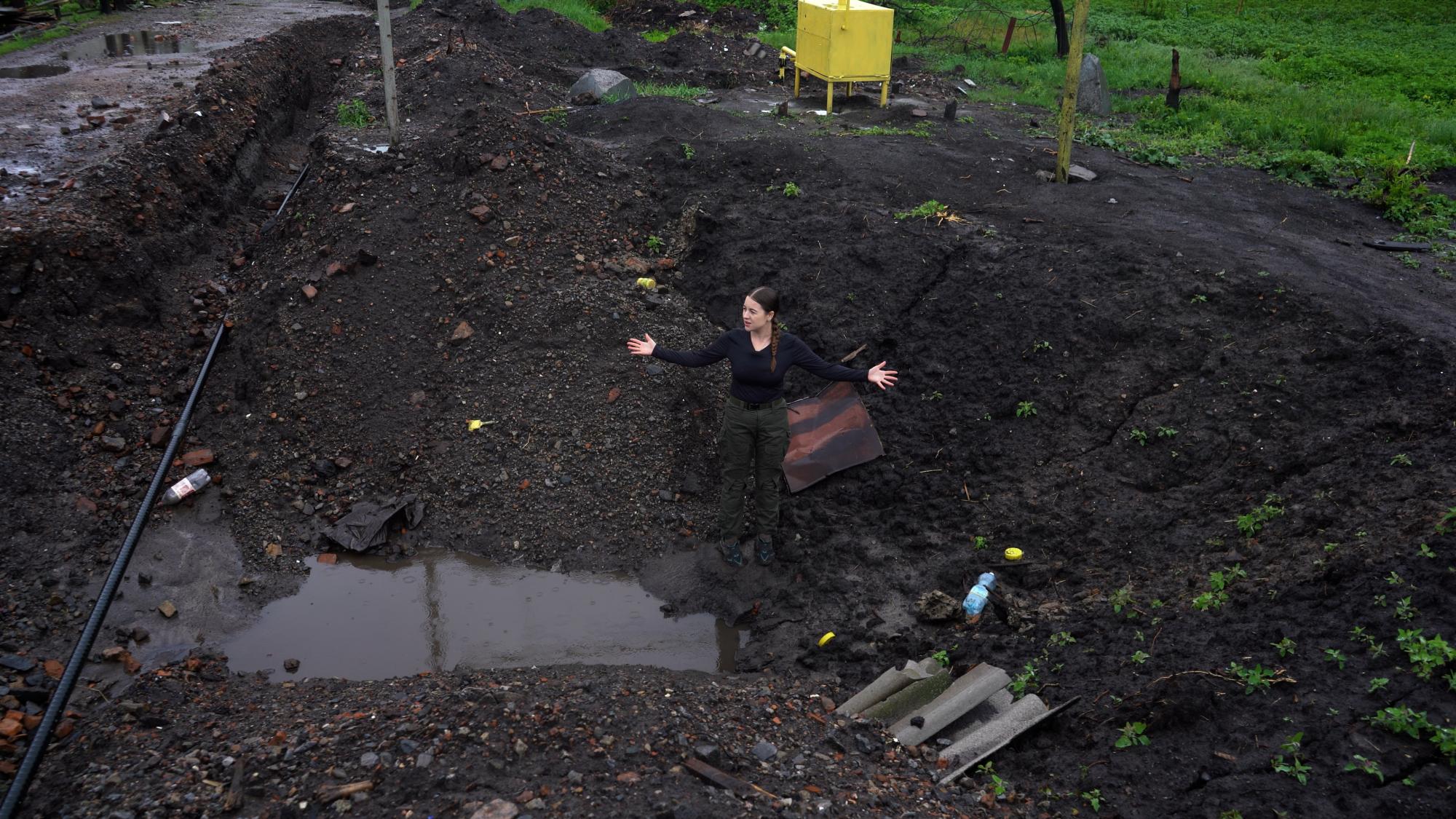 Craters in the streets are taller than a person (photo: RBC-Ukraine)
Craters in the streets are taller than a person (photo: RBC-Ukraine)
Those who have stayed in the town genuinely believe Ukrainian forces will hold the line, and they'll be able to rebuild and continue their lives in Bilopillia.
"We can't live as strangers somewhere else. We don't expect anyone to hand us anything. You know, your own walls feel warmer, more familiar. A big reason is that many of us have our own households - that's what helps us survive when there's nothing else anywhere," the woman says.
Sumy. 20 kilometers to front line
Half an hour later and we arrive in Sumy. Clean streets, open stores, cafés. People strolling around town. You wouldn't think that just over 20 kilometers away, heavy fighting is raging. But the war reminds everyone of its presence - the dull sound of explosions carries from the front.
The city center remembers the tragedy that happened here on May 13. On Palm Sunday, the Russians launched two North Korean ballistic missiles with cluster munitions, killing many locals. The enemy struck the Sumy National University building. Behind the shattered walls, you can see classrooms, desks, and personal items. The traces of the crime are visible even on the ground. The asphalt is littered with small craters from the cluster bombs.
The impact site has become a memorial. People bring flowers and toys to honor the lives taken by Russia.
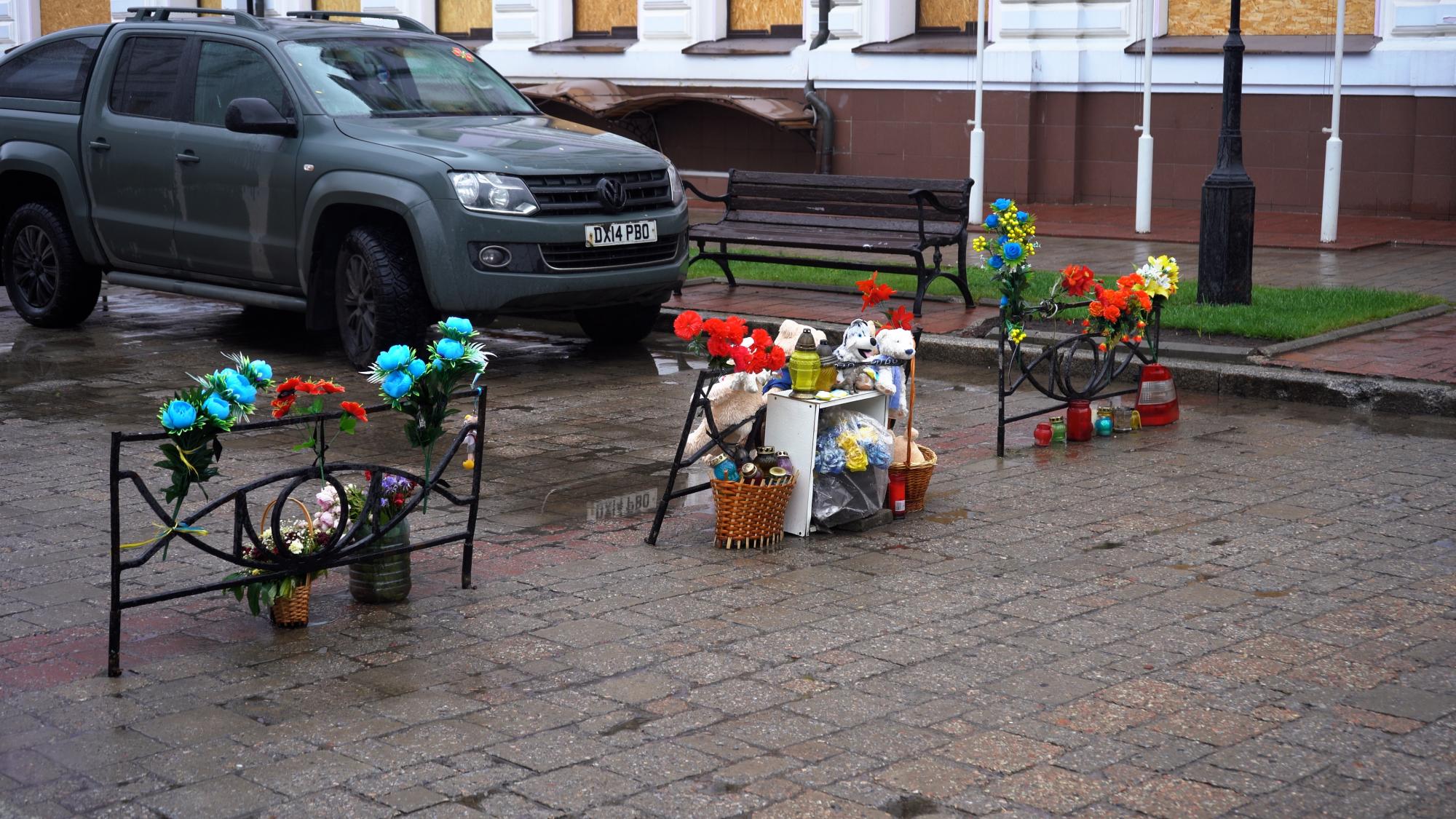 People continue to bring flowers to the site of the tragedy (photo: RBC-Ukraine)
People continue to bring flowers to the site of the tragedy (photo: RBC-Ukraine)
An elderly woman approaches us on the street, by coincidence, she's also from Bilopillia. However, due to the worsening situation, she was forced to move to Sumy. Still, she occasionally returns to plant and cultivate her garden.
"I went, did some weeding, and came back. But so many people have lost everything. It's heartbreaking - the animals left behind, too. In many villages, everyone has left. Poor people. There are no buildings left, nothing," the woman tells us.
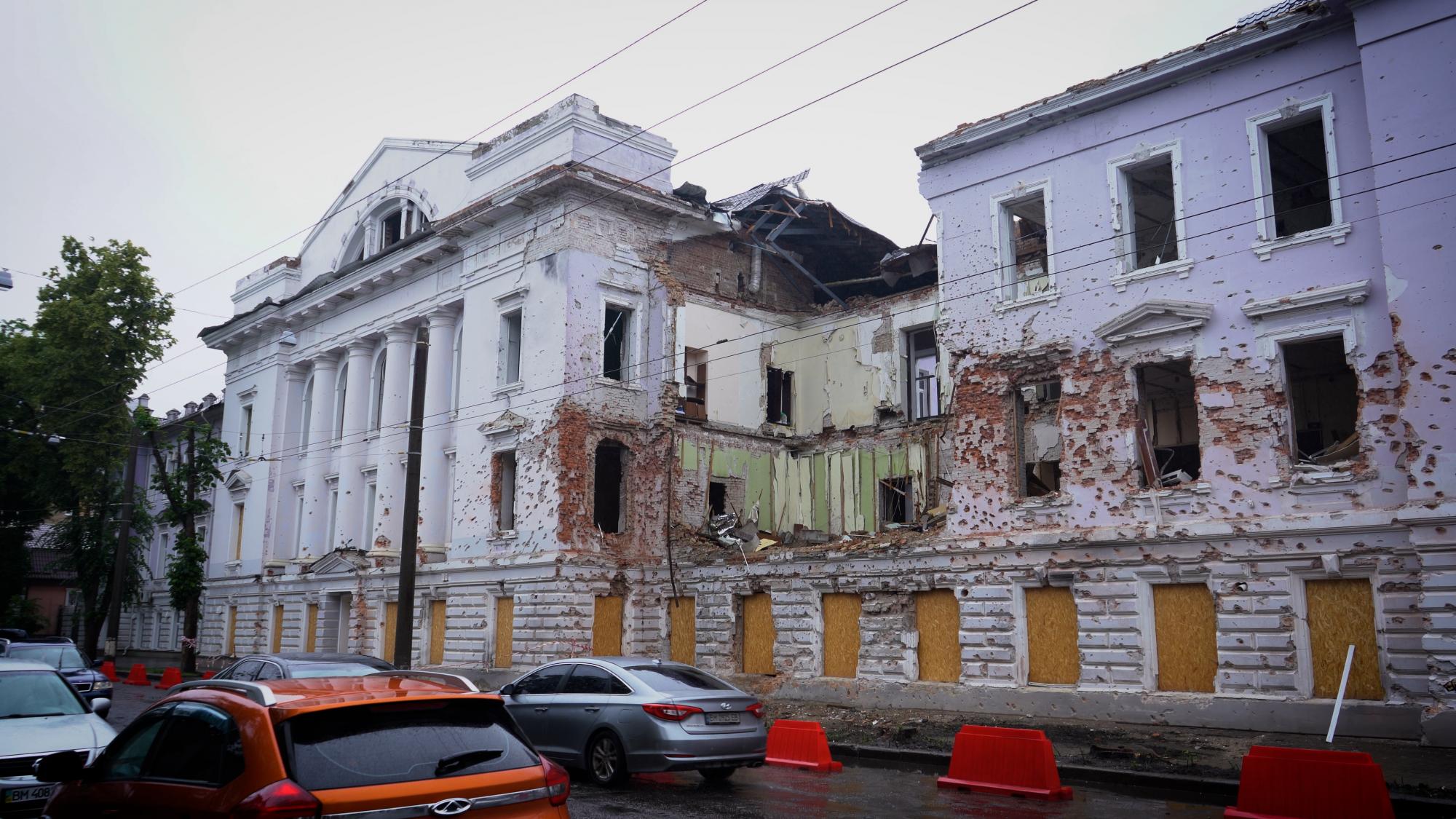 The destroyed building of Sumy State University (photo: RBC-Ukraine)
The destroyed building of Sumy State University (photo: RBC-Ukraine)
During our conversation, tears well up in her eyes. She's completely alone in this city now. Her grandson and son-in-law are at war. She was given shelter by kind people. We end the conversation with a hug. In times of grief, even a small act of support matters deeply.
In Sumy, people's moods vary. That morning, a whole family was seen leaving an apartment building, packing their entire lives into boxes. Many of those who fled border areas and settled here are now searching for homes in safer regions. But most still aren't planning to leave. They believe Sumy will hold.
"Of course it's scary. But I'm almost 100% sure that Sumy won't be taken. Our Armed Forces won't allow it - and neither will we. But what's really terrifying is how they bomb civilian infrastructure, homes, and people. That's the worst. Especially when it comes to children. The air raid alerts never stop. Especially in the evenings, as soon as it gets dark, the explosions begin. But Sumy will stand to the very end. However, I don't think there will be an end. Everything will be okay!" a Sumy resident says confidently.

